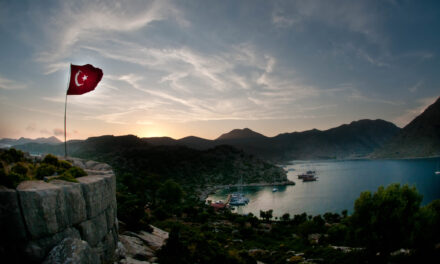BAABDA — Lebanese President Joseph Aoun chaired on Thursday the first meeting of the committee tasked with negotiating with Cyprus to demarcate the maritime borders of the exclusive economic zone between the two countries, according to a statement released by the Lebanese Presidency.
The committee is headed by Public Works Minister Fayez Rasamni. According to the Presidency, the “principles to be adopted in the negotiations were presented with the aim of reaching an agreement.”
Talks on the Lebanon-Cyprus maritime border date back to 2007, when the two sides drafted an initial agreement setting their southern maritime tripoint with Israel at point 1, off Naqoura. But the Lebanese Parliament never ratified the agreement due to Turkish pressure.
In 2011, Lebanon submitted Decree No. 6433 to the U.N., defining its EEZ unilaterally between point 23 (south) and point 7 (north). These key coordinates mark the EEZ boundaries with Israel and Syria. Point 23 is especially crucial — it defines Lebanon’s southern maritime limit where its waters intersect with the Cypriot and Israeli EEZs.
Recently, ties between Lebanon and Cyprus have been growing.
Last month, Joseph Aoun met in Nicosia with Cypriot President Nikos Christodoulides to discuss ways to deepen cooperation between the two countries across various sectors. In late April, Cypriot Transport Minister Alexis Vafeades announced the launch of a ferry line between Lebanon and Cyprus, expected to begin service soon.
Moreover, Cyprus recently proposed to lay a submarine cable to supply electricity from Cyprus to Lebanon. This proposal is part of a broader initiative for energy cooperation between the two countries. The project, also known as the EuroAsia Interconnector, involves connecting the electricity grids of Cyprus, Greece, and Israel. The cable would facilitate the transfer of electricity, potentially enabling Cyprus to export power to Lebanon.







